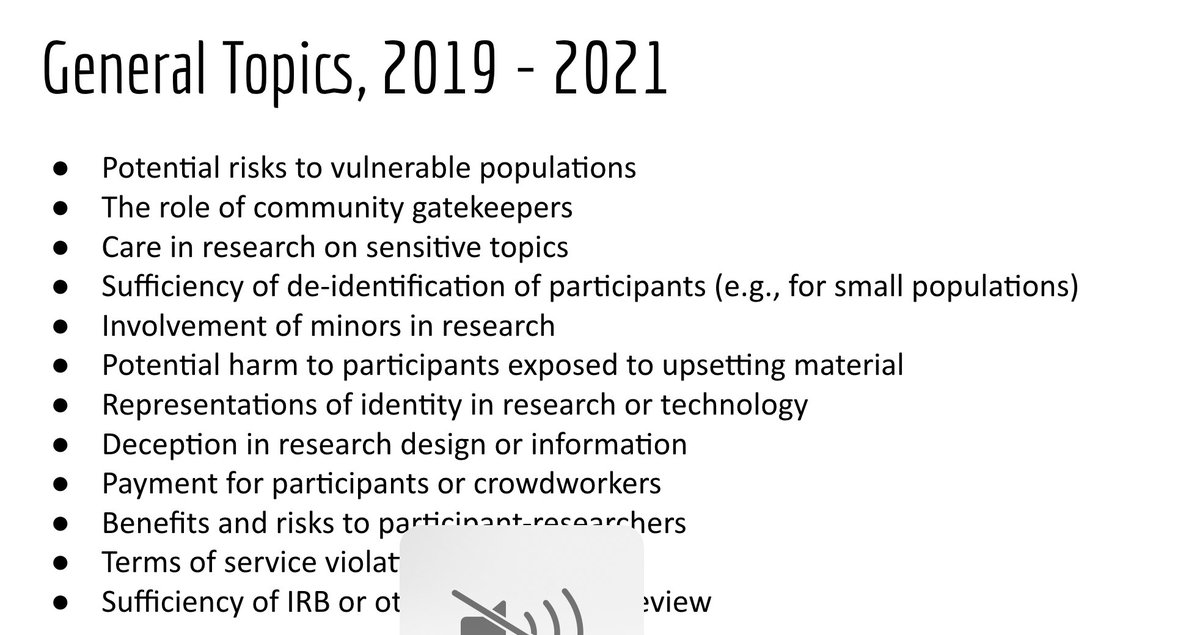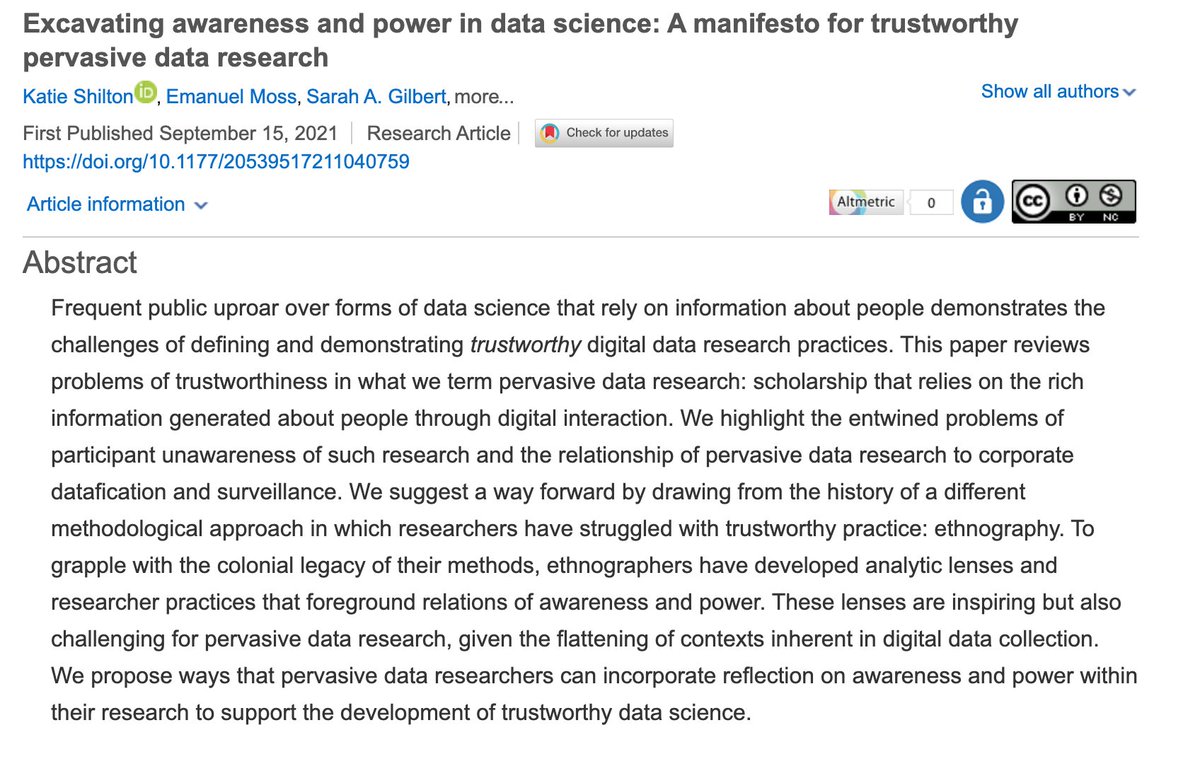
Belatedly, I wanted to say a bit about what was discussed yesterday with the @sigchi Research Ethics Committee at #CSCW2021. What is the committee and what are folks in our community struggling with or thinking about when it comes to research ethics and processes?
https://twitter.com/ACM_CSCW/status/1452724049273106433
The SIGCHI research ethics committee serves an advisory role on research ethics in the SIGCHI community. We can answer questions generally, but typically we come in during the review process to help reviewers who raise ethical issues. (We advise but do not make decisions.) 

The most common outcome when we weigh in on ethical issues that arise during paper review is that reviewers ask authors for clarifications or more information or reflection in their paper. Here is a list of some general topics that have come up in recent years. 

One topic that came up at the panel regarding process was that NeurIPS for example has instituted an explicit ethics review process for papers, as well as a requirement to include broader impacts discussions in papers. Should SIGCHI consider doing either of these?
There was also a lot of nuanced discussion of subjectivity and cultural/disciplinary/institutional/etc. differences in ethical decisions and judgments. This is one reason why authors explaining decisions from their perspective can be useful.
Concerns were also raised about the role of ethics review bodies like U.S. IRBs. Should there be a standard of due diligence if an author relies on an IRB judgment about the ethics of human subjects research?
But it is also important to remember that (a) IRBs & similar may over-focus on issues of compliance; and (b) not all ethical issues arise in the context of human subjects research, and research is often harmful at a much broader scale than individuals or even communities.
We brought up that ACM has a new policy on human subjects research that includes a requirement to comply with local regulations. Venues beyond SIGCHI have discussed requiring proof of e.g. IRB approval with submission. acm.org/publications/p…
A few specific issues were briefly discussed. The first was inconsistency around concerns about participant payment--i.e., reviewers flagging paying crowdworkers a low wage as an ethical concern but not having similar concerns about e.g. survey participants not being paid at all.
Another ethical issue raised was around work that comes from industry researchers, and whether research papers submitted might take positive PR spins and not disclose findings that are negative about a company or platform.
We also briefly discussed sustainability issues as related to research, and also a workshop on citational justice that will be continuing conversations: citationaljustice.org
We had a set of questions for the community that we didn't really get to entirely, so please feel free to share your thoughts on any of these here! 

Most importantly: are there ways that consideration of ethical issues in paper review could be a better process, or that the SIGCHI Research Ethics Committee could be more useful?
I'm the current chair of the committee, and would be happy to talk to anyone individually, and also please get in touch if you're interested in being on the committee. We'll also be recruiting more purposefully soon! chi-ethics-chair@acm.org
• • •
Missing some Tweet in this thread? You can try to
force a refresh





